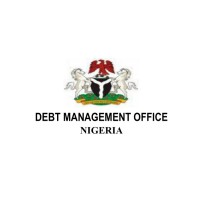Nigeria’s Successful Bond Auction: A Deep Dive into the N136 Billion Issuance
The Federal Government of Nigeria recently concluded a successful bond auction, raising a total of N136 billion through the issuance of five- and seven-year bonds. This successful fundraising effort underscores the government’s commitment to strategically managing its debt portfolio while simultaneously attracting investors to Nigeria’s fixed-income market. The auction’s outcome reflects robust investor confidence in the Nigerian economy and the government’s ability to meet its financial obligations.
The auction involved two distinct bond offerings: a five-year FGN August 2030 bond and a seven-year FGN June 2032 bond. Initially, the government offered N100 billion for each bond. However, due to strong investor demand, the allocation was increased. The five-year bond received N46.005 billion in allotments, while the seven-year bond garnered a significantly higher allocation of N90.157 billion. This oversubscription demonstrates the appeal of these bonds to investors seeking stable, medium-term investment opportunities.
The auction witnessed significant investor interest, with total bids exceeding the offered amount for both bonds. For the August 2030 bond, total bids reached N102.355 billion, surpassing the initial offering by N2.355 billion. Similarly, the June 2032 bond attracted even stronger demand, with total bids amounting to N165.807 billion, exceeding the offered amount by N65.807 billion. This heightened investor participation showcases the attractiveness of Nigerian sovereign bonds in the current market environment.
The Debt Management Office (DMO) provided further insights into the bidding process, revealing the range of bids received for each bond. For the five-year bond, bids ranged from 12.5 percent to 21.5 percent, indicating a wide range of investor expectations regarding yield. The seven-year bond saw a similar spread, with bids ranging from 15 percent to 22 percent. The final marginal rates for the five-year and seven-year bonds were set at 17.945 percent and 18 percent, respectively, reflecting a competitive pricing strategy that balanced the government’s financing needs with investor demand for attractive returns.
The issuance of these medium-term bonds is a crucial component of the Nigerian government’s broader financial strategy. By raising capital through bond issuances, the government can finance essential infrastructure projects, stimulate economic growth, and effectively manage the country’s debt profile. Simultaneously, these bonds offer investors a compelling investment opportunity within Nigeria’s fixed-income market, providing a balance between risk and return.
The DMO’s proactive approach to debt management is further exemplified by the recent announcement of an offering of N200 billion in savings bonds. This offering includes a reopening of the June 2032 bond, maintaining the coupon rate of 17.95 percent. This move reinforces the government’s commitment to providing diverse investment options for savers and investors while continuing to manage its borrowing program effectively. The success of the bond auction and the subsequent savings bond offering highlights the growing confidence in the Nigerian economy and its ability to attract both domestic and international investment. These initiatives contribute to strengthening the country’s financial position and supporting its long-term economic development goals.


